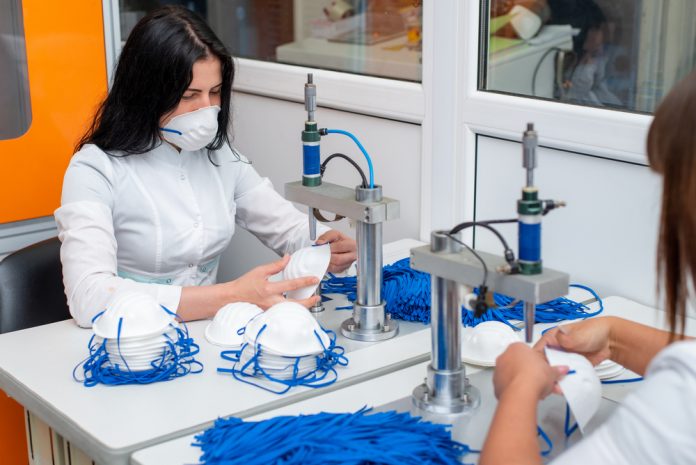The coronavirus pandemic has had an enormous impact on communities and industries around the world. Due to how quickly it came about, many companies were unprepared to face it and had no plans in place. While in these current times, protecting the lives of our loved ones, our health professionals and essential workers is key, it is vital that businesses are supported in the correct manner.
With the closing of non-essential business meaning thousands of people placed on furlough, manufacturing and industrial industries have adapted their traditional product lines and expertise to help with the global and national production of certain goods. With a distinct shortfall in the supply of certain goods around the UK, businesses and industry-leading professionals have never worked so in-line with each other to combat a common goal. But how exactly has manufacturing adapted to meet the current demands in the market?
Medical Equipment
When the predicted impact of this national health crisis was announced and the measures needed to mitigate its impact, serious questions were raised regarding the preparedness of essential medical equipment such as ventilators. To meet such a demand for certain products, original manufactures, health professionals and industry organisations worked multilaterally in the formation of a ‘ventilator’ consortium with industrial, technological and engineering business to produce the essential equipment needed.
While the pressure on key pieces of equipment such as ventilators was not as prominent as expected, the ability for the NHS to cope was aided through the help of private companies, such as Airbus, BAE Systems, Ford and Rolls Royce, but most notably, the Mercedes Benz F1 team. The motor racing team worked with UCL engineers and clinicians at UCLH to build a device which delivered oxygen to the lungs without the need of a mechanical ventilator.
Diversification
One of the most prominent issues that arose during this pandemic was the critical need for personal protective equipment, or more commonly known as PPE, to protect frontline health and care professionals. Due to the social distancing measures and the closing of non-essential businesses to mitigate the spread of the virus, businesses across the UK witnessed a distinct decrease in demand for their traditional products or services.
To ensure businesses could still employ their workforce and utilise their skill, knowledge and willingness to help the country overcome this virus, many turned to the production of the vital PPE for their local health services. With medical professionals witnessing distinct supply chain issues from across the world, the diversification of local businesses in the production of face masks, gowns and visors has been vital in helping frontline services who are most in need. To see how companies in your area are helping in the production of PPE, The Manufacturer have put together a list of every UK manufacturer helping to produce PPE.
While companies up and down the UK have leapt to the task of producing vital PPE, the individual efforts at home should not be forgotten, with thousands of peopling signing to help to produce face masks and gowns.
Supply Chains
Although supply chain issues across the UK are hampering smaller businesses, the engineering industry across and trade organisations have come together to mitigate the supply chain issues. With the sharing of knowledge, supplies and equipment, a vital lifeline in the engineering and manufacturing sector has been created to protect smaller businesses throughout the UK. Although competition between firms is vital to raise standards across the engineering and manufacturing sectors, the importance of sharing knowledge and supporting each other has never been so vital. With the demand increasing for certain products to support frontline services, competition is currently secondary.
Find a Home-Based Business to Start-Up >>> Hundreds of Business Listings.

















































